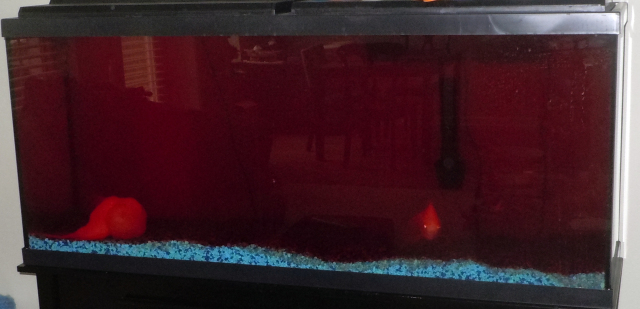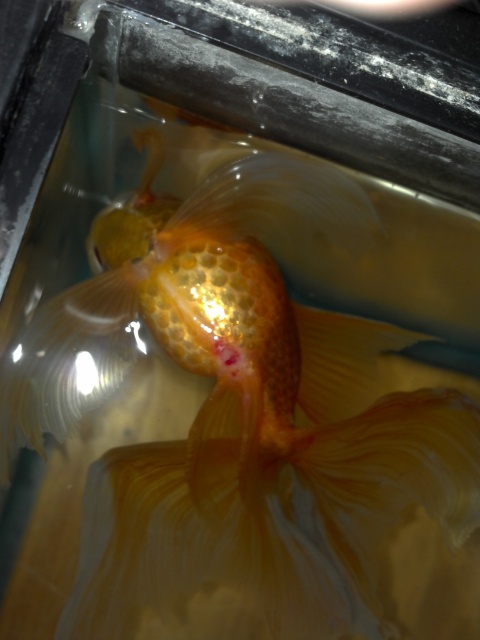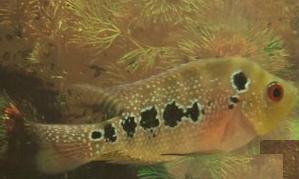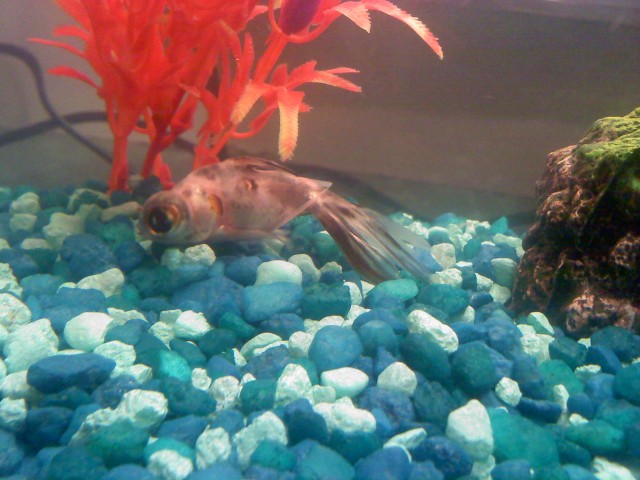QuestionHi again,
I adopted 2 female crowntail bettas from my local Petco Sunday and put them in a 2 gallon Betta Starter hexigon tank, that my sister gave me. She had it for her betta but he recently passed away at 3 years old. But back to my bettas, one is really active and seems already settled in the tank and even has learned were food comes from. The other one.. well, she has me a little worried, I feel like in compared to the other girl , I saved this one it seems like. She's thin and doesn't seem to have enough energy to swim around much, and she hasn't made it to the top without much effort.
With my healthier girl, my only wonder is she has a belly..could it be from constipation or something else? If it could be constipation how should I fix that..with peas? And for my lacking energy girl...What should I do, I was thinking of putting her back into the big cup she came in because in there she could eat easier..in the tank I worry because she can't easily get to the top that she might just get worse and i'd like to try and help her. Besides being thin...her fins look small but I can't tell if it was something from being in those cups, or if she's young...or I don't know. The tank has a filter and a airstone, I don't have a heater in it yet but with the heat wave in were I live ( it's been about 112F during the week) I don't think they need one yet
Thanks again
AnswerHi Lara,
First, are you sure that they are females? Most bettas sold are males. If they are males, then you never want to have two in the same tank because the one will either kill the other or at least constantly bother it. That could be what is happening.
In either case, separating the fish is a good plan.
The healthier betta having a large belly is most likely due to overfeeding. Bettas will eat a lot if you give them a lot of food. They really only need a very little bit of food, once a day.
-- Ron C.
rcoleman@cichlidresearch.com
Cichlid Research Home Page <http://cichlidresearch.com>

 Update on Lionhead Oranda
Question
After effects of tetra
Hello again! Tha
Update on Lionhead Oranda
Question
After effects of tetra
Hello again! Tha
 goldfish floating upside down...help please!
QuestionShirley1
QUESTION: My daughters goldfish
goldfish floating upside down...help please!
QuestionShirley1
QUESTION: My daughters goldfish
 flower horn fish
Question
my fh
please identify my flower horns sex male
flower horn fish
Question
my fh
please identify my flower horns sex male
 betta having a rough go
Question
betta fin
Hi, I got my daughter a betta about
betta having a rough go
Question
betta fin
Hi, I got my daughter a betta about
 Goldfish On Bottom Of Tank
Question
Patches on the bottom
Hi.
I have two goldfish,
Goldfish On Bottom Of Tank
Question
Patches on the bottom
Hi.
I have two goldfish,